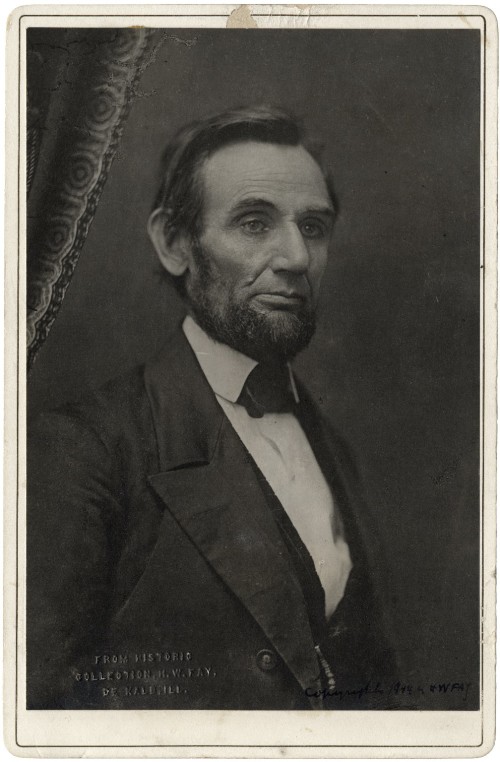Growing up on the frontier, Abraham Lincoln had few books to read in his early days—but among them were the works of Shakespeare, which Lincoln cherished throughout his life. The actor Joseph Jefferson later told the story of how Lincoln, as a young lawyer, successfully defended his father’s Illinois theater when a religious revival threatened to shut it down.
[Editor’s Note: This text first appeared on Shakespeare in American Life, a website developed as both an online resource and a companion project for a radio documentary of the same name that was produced by Richard Paul and narrated by Sam Waterston.]
Lincoln did not often quote Shakespeare in his writings and speeches, but he liked to recite favorite passages from the plays in private, and once wrote about Macbeth in a letter to actor James Hackett. He enjoyed going to the theater, too, which in his day often meant Shakespeare.
Some days before his assassination, Lincoln read aloud from a speech from Macbeth about the death of Duncan the king, including the line, “after life’s fitful fever he sleeps well.” But it was another play about assassination, Julius Caesar, which helped shape the thinking of his killer, John Wilkes Booth.
In shooting Lincoln, whom he considered a tyrant like Julius Caesar, Booth expected to be admired like Brutus, Shakespeare’s “noblest Roman of them all.” (A 2006 biography of Booth was entitled American Brutus.) Another contemporary observer compared Lincoln’s long railroad journey home to Springfield, with the funeral train’s frequent stops in major cities, to Antony’s display of Caesar’s murdered body.
Want to learn more about Shakespeare and Lincoln?
- Listen to this Folger podcast, “Men of Letters: Shakespeare’s Influence on Abraham Lincoln.”
- Watch a video of Folger Director Michael Witmore discussing the language of the Gettysburg Address.
Stay connected
Enter your email address to follow this blog and receive notifications of new posts by email.


